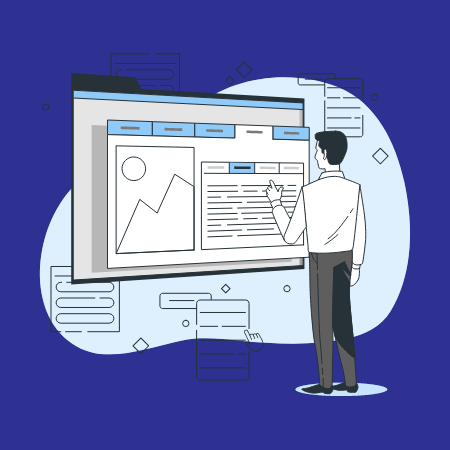
Medical offices are notoriously behind the times in terms of technology, despite the fact that patients expect them to be. There are numerous reasons for this, not the least of which are the time, resources, and funds required to implement such changes. However, research has shown that, while new technologies may be disruptive in the short term, they will bring time-saving benefits to your practice that will quickly outweigh any temporary drawbacks.
Must have healthcare technologies for your practice
Many doctors are hesitant to devote the time required to adopt and learn new technologies. Some have also expressed concern that they will lose one-on-one time with patients if they are forced to look at screens during their brief patient encounters. Their concerns may be valid temporarily as they learn how to use the new systems, but in the long run, the wealth of benefits provided by these new solutions will provide time-saving advantages that are easily discernible. Because there are so many technological options available, hiring practice management services to assist with practice management solutions may be the first step toward going digital. These consultants can lay out all of your office's options and costs, as well as implement staff training.
Electronic Health Records (EHR) is mandatory!
Many doctors are hesitant to devote the time required to adopt and learn new technologies. Some have also expressed concern that they will lose one-on-one time with patients if they are forced to look at screens during their brief patient encounters. Their concerns may be valid temporarily as they learn how to use the new systems, but in the long run, the wealth of benefits provided by these new solutions will provide time-saving advantages that are easily discernible. Because there are so many technological options available, hiring practice management services to assist with practice management solutions may be the first step toward going digital. These consultants can lay out all of your office's options and costs, as well as implement staff training.
Online appointment booking system
According to research, patients are gravitating toward digitally-based practices that provide them with easy access to managing their health via a smartphone or laptop. Patients can use patient portals to access their medical history and test results, schedule appointments, request prescription refills, and, in some cases, email doctors or medical staff for assistance or information. As a result, patients are more likely to choose doctors whose practices make their lives easier and reduce time spent on the phone. Access to their medical records can even help reduce errors because patients are more likely to point out any errors they notice on their record. Physicians benefit from patient portals as well, as they are better able to manage chronic conditions with online monitoring and communication. They can collaborate with other providers or make referrals to keep patients happier with more comprehensive health management.
Patient Data
Wearables are finally reaching their potential to provide providers with a more complete picture of a patient's health trends, thanks to the prevalence of basic fitness trackers — devices that measure physical activity like steps or heart rate, more advanced devices like the Apple Watch, and now devices that can track sleep patterns. However, wearables are only the tip of the iceberg in terms of patient-generated data. Bluetooth scales monitor weight and body fat percentage, mobile apps monitor dietary patterns or mental health issues, and other devices monitor blood sugar levels or blood pressure, for example. Micrometric sensors that can be woven into fabrics and other inconspicuous places have provided accurate patient data for clinical trials and remote patient monitoring.
Telemedicine services
The advantages of laptops, PDAs, and tablets for physicians are numerous. They are a must for incorporating telemedicine in your practice management. The need for a telemedicine system is greater than at all times. After the aftermath of covid-19 people have gotten into the habit of staying at home, which is the breeding ground for the success of Telemedicine. Patients enjoy the luxury of treatment without getting up from bed and doctors can treat patients at home. It also assists physicians with better access to the entire medical record of the patient they are treating. The medical record can be supplemented with information from other providers, as well as lab and imaging results, over time.
Practice Management Systems (PMS)
By automating your practice with a high-quality management system, you can eliminate time-consuming administrative tasks in the past. Choosing the right PMS is critical, as it includes more than just medical billing software, but also a way to integrate clinical, financial, and administrative operations to maximize productivity. The majority of PMS will include features such as:
- appointment scheduling, as well as text or phone reminders
- correctly incorporating demographic information from ID cards into the patient record
- confirming insurance coverage and eligibility
- keeping track of patients financial obligations in order to collect copays
- creation of administrative reports
To ensure an easy transition, it is critical to understand the features and system requirements of PMS as well as your specific practice needs. Furthermore, you must ensure that your software complies with federal mandates and is supported by excellent customer service in the event that questions or problems arise. Practice owners need to ace their technology game to beat the unavoidable competition around them.
